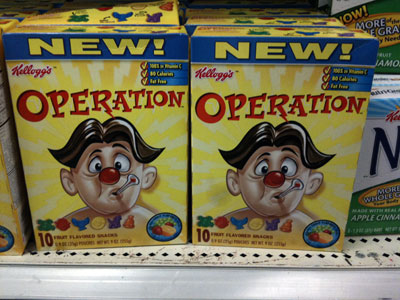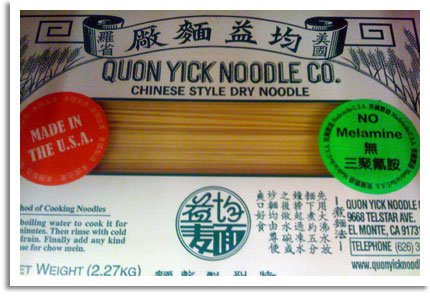There are a number of ways to research the Deepwater Horizon disaster that continues to unfold in the Gulf of Mexico. You can find Deepwater Horizon news via Google News or watch a Senate webcast about the recent oil spill in the Gulf of Mexico. You can also peruse securities filings, for mentions of the Deepwater Horizon.
The McMoRan Exploration Co. Form 10-Q Reports:
In April 2010, the Deepwater Horizon, an offshore drilling rig located in the deepwater of the Gulf of Mexico, sank following a catastrophic explosion and fire. Hydrocarbons have been discharged continuously into the Gulf of Mexico from the wellhead since the time of this disaster as efforts to close the wellhead and contain the spill continue. Although McMoRan has no operations in the deepwater of the Gulf of Mexico and its operations were not associated with this event, the Minerals Management Service (MMS) advised McMoRan on May 7, 2010 that approval of all new drilling permits in the offshore Gulf of Mexico is deferred until the U.S. Department of Interior and federal government complete an ongoing safety review related to the explosion of the Deepwater Horizon. The Department of Interior expects to deliver its report to President Obama by May 28, 2010.
Delays in obtaining permits from the MMS may impact the timing of drilling new wells scheduled during 2010. McMoRan’s in-process drilling operations, including the wells currently drilling at Davy Jones, Blackbeard East and Blueberry Hill have not been affected. The extent to which these recent events may impact our future results is uncertain.
The Navigators Group, Inc. Form 10-Q reports:
Our insurance subsidiaries provided property reinsurance covering the Deepwater Horizon oil drilling rig that exploded in the Gulf of Mexico on April 20th, 2010 and subsequently sank. We received loss notifications for the first party property damage related to the loss of the Deepwater Horizon. Our net physical damage loss for this claim is currently estimated to be approximately $4.6 million, net of tax, reinsurance and reinstatement premiums.
We also participated in various layers of the marine liability insurance programs purchased by entities with potential liability exposures related to the Deepwater Horizon incident. At this point in time, we are unable to accurately estimate the potential liability arising from the Deepwater Horizon incident, the allocation of that liability amongst the various participants, or what recoveries would be available to the participants from other applicable insurance coverage. If losses were incurred in the various marine liability insurance layers in which we participate on, we believe our exposure would be mitigated by the substantial reinsurance coverage we maintain. Our management expects that the ultimate liability, if any, for the marine liability portion of the Deepwater Horizon loss will not be material to our consolidated financial position, but if a significant portion of the marine liability layers in which we participate were to be exhausted, the loss could potentially have a material adverse effect on our consolidated results of operations or cash flows in a particular fiscal quarter or year.
The Parker Drilling Company Form 10-Q peports:
As part of our normal business operations, we monitor industry developments and their potential impacts to our business. In this regard, we are monitoring the recent incident in the U.S. Gulf of Mexico involving the Deepwater Horizon. At this time, we cannot predict what, if any, actions may be taken by the United States or state governments or our customers or other industry participants in response to the incident or what impact any such actions may have on our operations or the operations of our customers.
The Apache Offshore Investment Partnership Form 10-Q reports:
On April 22, 2010, a deepwater Gulf of Mexico drilling rig, Deepwater Horizon, operating on Mississippi Canyon Block 252 sank after an apparent blowout and fire. Although attempts are being made to seal the well, hydrocarbons have been leaking and the spill area continues to grow. The Partnership does not have any ownership in the field and as of this date, the spill has not affected the Partnership’s current operations. However, the Partnership cannot predict at this time the potential impact of the incident and resulting spill on our future drilling activity or operations or how government agencies may respond with changes in laws and regulations pertaining to the Gulf of Mexico.
The International Shipholding Corporation Form 10-Q reports:
Our vessels which travel in the Gulf of Mexico could be disrupted due to the oil slick presently moving towards shore. On April 20, 2010, the Deepwater Horizon Oil rig, located in the Gulf of Mexico, had an explosion causing an oil spill into the Gulf of Mexico waters. Given the nature and scope of our operations, specifically the Rail-Ferry Service, we are vulnerable to disruption this oil slick may cause to our operations or to any damage it may cause to our vessels.
The American International Group, Inc. Form 10-Q reports:
On April 20, 2010, an explosion on the Deepwater Horizon offshore drilling rig, operating in the Gulf of Mexico off the coast of Louisiana, resulted in a fire that sank the rig and caused a massive-scale oil spill. AIG estimates that its exposure to property loss on this event was approximately $20 million, which has been paid. It will not be possible to estimate the amount of casualty loss associated with this event, if any, until the determination of the cause and responsibility for the explosion and resulting oil spill and the assessment of damages resulting from the oil spill, as well as other factors, have been resolved. Therefore, although AIG cannot currently quantify its ultimate liabilities arising from this event, it is possible that such liabilities could have a material adverse effect on AIG’s consolidated results of operations or consolidated cash flows for an individual reporting period.
Transatlantic Holdings, Inc. Form 10-Q reports:
On April 20, 2010, an explosion occurred on the Deepwater Horizon oil rig in the Gulf of Mexico. Based on preliminary information, TRH expects that total industry losses from this event could reach $1.5 billion and TRH’s pre-tax costs, net of reinsurance and reinstatement premiums, should be less than 1% of such industry losses. TRH will record its estimate of costs related to this event in the second quarter of 2010, based on information then available.
TRH’s present estimate of its costs arising from the Deepwater Horizon explosion is very preliminary due to the recent date of the explosion’s occurrence and the developing nature and potential breadth of related consequences, among other factors. In addition, the estimate involves a significant amount of judgment and is based on information available at the time of estimation.

